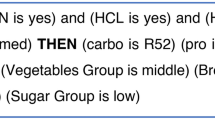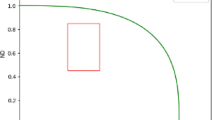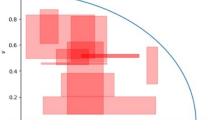Abstract
Background:
A Fuzzy Obesity Index (OBESINDEX) for use as an alternative in bariatric surgery indication (BSI) is presented. The search for a more accurate method to evaluate obesity and to indicate a better treatment is important in the world health context. BMI (body mass index) is considered the main criteria for obesity treatment and BSI. Nevertheless, the fat excess related to the percentage of Body Fat (%BF) is actually the principal harmful factor in obesity disease that is usually neglected. This paper presents a new fuzzy mechanism for evaluating obesity by associating BMI with %BF that yields a fuzzy obesity index for obesity evaluation and treatment and allows building up a Fuzzy Decision Support System (FDSS) for BSI.
Methods:
Seventy-two patients were evaluated for both BMI and %BF. These data are modified and treated as fuzzy sets. Afterwards, the BMI and %BF classes are aggregated yielding a new index (OBESINDEX) for input linguistic variable are considered the BMI and %BF, and as output linguistic variable is employed the OBESINDEX, an obesity classification with entirely new classes of obesity in the fuzzy context as well is used for BSI.
Results:
There is a gradual, smooth obesity classification and BSI when using the proposed fuzzy obesity index when compared with other traditional methods for dealing with obesity.
Conclusion:
The BMI is not adequate for surgical indication in all the conditions and fuzzy logic becomes an alternative for decision making in bariatric surgery indication based on the OBESINDEX.
Similar content being viewed by others
Article PDF
Author information
Authors and Affiliations
Corresponding authors
Rights and permissions
About this article
Cite this article
Azevedo, J., Miyahira, S., Leal, L. et al. Fuzzy logic as a decision-making support system for the indication of bariatric surgery based on an index (OBESINDEX) generated by the association between body fat and body mass index. Nat Prec (2011). https://doi.org/10.1038/npre.2011.5516.1
Received:
Accepted:
Published:
DOI: https://doi.org/10.1038/npre.2011.5516.1



